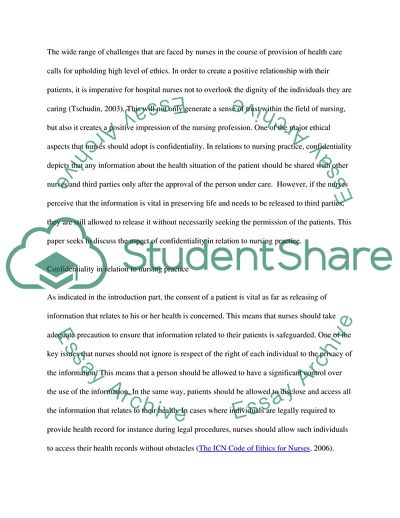Cite this document
(Confidentiality in relation to nursing practice Essay, n.d.)
Confidentiality in relation to nursing practice Essay. https://studentshare.org/nursing/1764308-confidentiality-in-relation-to-nursing-practice
Confidentiality in relation to nursing practice Essay. https://studentshare.org/nursing/1764308-confidentiality-in-relation-to-nursing-practice
(Confidentiality in Relation to Nursing Practice Essay)
Confidentiality in Relation to Nursing Practice Essay. https://studentshare.org/nursing/1764308-confidentiality-in-relation-to-nursing-practice.
Confidentiality in Relation to Nursing Practice Essay. https://studentshare.org/nursing/1764308-confidentiality-in-relation-to-nursing-practice.
“Confidentiality in Relation to Nursing Practice Essay”. https://studentshare.org/nursing/1764308-confidentiality-in-relation-to-nursing-practice.


